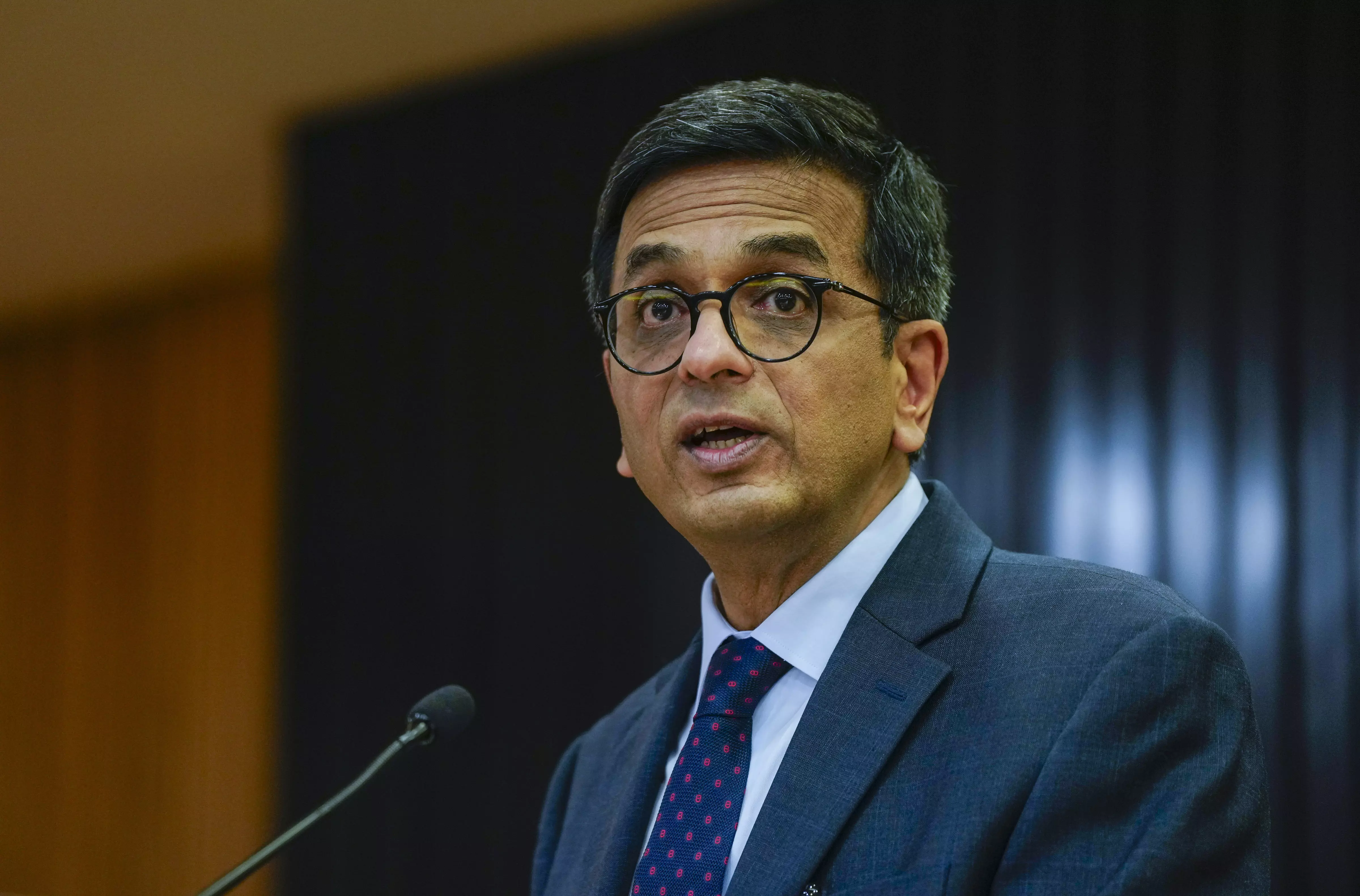
CJI highlights need to change ‘adjournment culture’ in Indian judiciary
CJI says adjournment culture can prolong agony of litigants and perpetuate cycle of backlog, asserts that trend of bail rejection by trial courts needs relook

Courts should not “wait for citizens to die” to decide cases, Chief Justice of India DY Chandrachud has said, asserting that the “adjournment culture” in the Indian judicial system prolongs the agony of litigants.
In his inaugural address at the All-India District Judges’ Conference at Dhordo in Gujarat’s Kutch district on Saturday (March 2), CJI Chandrachud also expressed concern that the longstanding principle of “bail is the rule, jail is the exception” was losing ground, with district courts hesitating to deal with matters involving personal liberty.
On “adjournment culture”
Chief Justice Chandrachud said the backlog and pendency of cases present “a formidable challenge” to the efficient administration of justice.
“One of the major issues is that of adjournment culture. This practice, characterised by repeated requests for delays in proceedings, has far-reaching implications for the efficiency and integrity of our legal system,” he said.
“This culture of adjournments, which common citizens believe has become a part of the judicial system, can prolong the agony of litigants and perpetuate the cycle of backlog,” he added.
“We should not wait for our citizens to die for their case to be decided,” Chandrachud said, citing the instance of the legal heirs of a farmer being embroiled in legal proceedings, which had started in his lifetime, long after his death.
Need for multi-faceted approach
The problem of pendency of cases requires a multi-faceted approach encompassing systemic reforms, procedural enhancements, and deployment of technology, he said.
The role of a district judge is crucial in streamlining court procedures, expediting case disposal and promoting alternative dispute resolution mechanisms, the CJI said.
Personal liberty
There is a rising apprehension that district courts are increasingly reluctant to entertain matters concerning personal liberty, he noted.
“The longstanding principle that ‘bail is the rule, jail is the exception’ seems to be losing ground, as evidenced by the growing number of cases reaching High Courts and the Supreme Court as appeals against the rejection of bail by trial courts,” Chandrachud added.
This trend warrants “a thorough re-evaluation”, he said.
The district judiciary serves as “the primary interface between the justice system and the local communities it serves”, and it should constantly evolve its working so that people’s faith in the judiciary is maintained, Chandrachud said.
Lack of infrastructure
One of the foremost challenges before the district judiciary is a lack of infrastructure, which leads to overcrowded courtrooms, insufficient space for legal proceedings and delays in case hearings, he said.
Emphasising the importance of inclusivity and diversity in the judiciary, CJI Chandrachud said much improvement has been made towards achieving greater gender representation, with women now constituting 36.3 per cent of the working strength of the district judiciary.
“However, while progress has been made in terms of gender representation, there remains a pressing need to ensure that our judicial institutions are truly inclusive and accommodating for all,” he added.
The “staggering” vacancy rates for seats reserved for Scheduled Castes and Scheduled Tribes, constituting 66.3 per cent of the total unfilled posts, highlight the urgent need for proactive recruitment strategies, Chandrachud said.
Power of words
He also said that judges in the district judiciary must be conscious of the language they use in court proceedings and judgments.
“After all, language holds immense power and influence within the realm of law and justice. The words used by judges not only reflect norms and attitudes but also shape perceptions and outcomes.... When judgments employ gender-stereotypical language or perpetuate biases, they perpetuate systemic inequalities and contribute to the marginalization of women within the legal system,” he added.
Importance of technology
Technology can be a great tool for improving efficiency, the CJI noted.
“Just as sunshine is said to be the best disinfectant, I believe that technology is the best tool at our disposal to eliminate the inefficiency and opacity surrounding judicial processes,” he said.
The Chief Justice noted that only 57.4 per cent of courtrooms in the district judiciary have video conference-enabled computers on the judge’s dais, and this impedes the goal of providing efficient and accessible justice.
Judges should not be unduly affected by criticism and commentary on social media, he said, adding that “the role of a judge is to dispense justice impartially, without being swayed by external pressures or public opinions”.
(With agency inputs)

